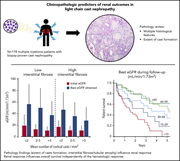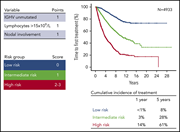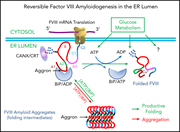Issue Archive
Table of Contents
EDITORIAL
BLOOD COMMENTARIES
SPECIAL REPORT
ILROG emergency guidelines for radiation therapy of hematological malignancies during the COVID-19 pandemic
The International Lymphoma Radiation Oncology Group provides evidence-supported options for adjusting radiation therapy timing and delivery for patients with selected hematological malignancies in the COVID-19 pandemic, while maintaining efficacy and safety.
CLINICAL TRIALS AND OBSERVATIONS
Clinicopathologic predictors of renal outcomes in light chain cast nephropathy: a multicenter retrospective study
CME
Clinical Trials & Observations
In this month’s CME article, Royal and colleagues report on light chain cast nephropathy in 178 patients with myeloma and demonstrate that the extent of cast formation and interstital fibrosis/tubular atrophy predicts the quality of renal response to therapy, which, in turn, is associated with overall survival.
HEMATOPOIESIS AND STEM CELLS
Patient-reported outcomes in survivors of childhood hematologic malignancies with hematopoietic stem cell transplant
Clinical Trials & Observations
Investigators from St. Jude Children’s Research Hospital provide a valuable resource for understanding the long-term health of pediatric stem cell transplant survivors by analyzing both detailed patient-reported and clinically assessed outcomes and comparing these with similar data for patients receiving nontransplant regimens and normal controls.
LYMPHOID NEOPLASIA
International prognostic score for asymptomatic early-stage chronic lymphocytic leukemia
A key question for many patients when first diagnosed with early-stage chronic lymphocytic leukemia is, “When will I need therapy?” Condoluci and an international consortium report a validated algorithm comprising clinical and laboratory measures to estimate the probability of requiring therapy within 5 years for individual patients.
Epigenetic reprogramming sensitizes immunologically silent EBV+ lymphomas to virus-directed immunotherapy
Most Epstein-Barr virus (EBV)–associated lymphomas express viral proteins that are poorly immunogenic. Dalton and colleagues used a high-throughput screen to identify decitabine as a potent inducer of immunogenic EBV antigens and validate the drug’s ability to sensitize lymphomas to EBV-cytotoxic T lymphocytes in vitro and in vivo.
MYELOID NEOPLASIA
High frequency of germline RUNX1 mutations in patients with RUNX1-mutated AML
Brief Report
Simon and colleagues report their investigations into whether mutations in RUNX1 observed in a series of 430 acute myeloid leukemia (AML) samples are somatic or germline. They revealed a surprisingly high frequency of germline mutations that should prompt further exploration.
PLATELETS AND THROMBOPOIESIS
Megakaryocyte migration defects due to nonmuscle myosin IIA mutations underlie thrombocytopenia in MYH9-related disease
Using a murine model, Pal and colleagues demonstrated that MYH9-RD mutations observed in patients impair megakaryocyte chemotaxis, disrupting migration towards the vasculature and interfering with proplatelet release, thereby causing macrothrombocytopenia.
THROMBOSIS AND HEMOSTASIS
Factor VIII exhibits chaperone-dependent and glucose-regulated reversible amyloid formation in the endoplasmic reticulum
Producing recombinant factor VIII in mammalian cells is inefficient. Poothong and colleagues provide novel insight into mechanisms that limit factor VIII secretion through endoplasmic reticulum stress, with implications for ongoing hemophilia A gene therapy clinical trials.
LETTER TO BLOOD
The BTK inhibitor ibrutinib may protect against pulmonary injury in COVID-19–infected patients
Clinical Trials & Observations
Treon et al provide early clinical data supporting a theoretical rationale for continuing ibrutinib in patients receiving the drug during COVID-19 illness.
BLOOD WORK
CONTINUING MEDICAL EDUCATION (CME) QUESTIONS
-
Cover Image
Cover Image
![issue cover]()
Actomyosin organization at the leading edge of a mouse megakaryocyte expressing green fluorescent protein–tagged nonmuscle myosin IIA (green) and stained for F-actin (red). See the article by Pal et al on page 1887.
- PDF Icon Front MatterFront Matter
- PDF Icon Table of ContentsTable of Contents
- PDF Icon Back MatterBack Matter
- PDF Icon Editorial BoardEditorial Board
Advertisement intended for health care professionals
Email alerts
Advertisement intended for health care professionals










Using patient-reported outcomes to improve survivorship care